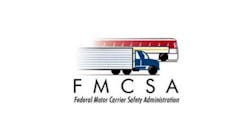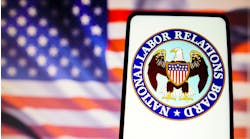On Jan. 6, 2015, Penske Logistics announced its intention to appeal to the U.S. Supreme a federal appeals court ruling that out-of-state truck drivers are subject to California’s laws regarding meal and rest periods.
In July 2014 a three-judge panel of the Ninth Circuit Court of Appeals settled a split in the lower federal courts in California by holding that the Federal Aviation Administration Authorization Act (FAAAA) of does not preempt California’s meal and rest break requirements with respect to motor carriers. In late December 2014 the Appeals Court rejected Penske’s request that it grant a review of the three-judge decision by its full 11-judge panel.
The case began when delivery drivers and installers sued Penske, which was defined under law as an interstate motor carrier, charging that the company had violated California’s meal and rest break laws.
Penske argued that state meal and rest break laws such as California’s were preempted under the FAAAA because the state laws imposed timing requirements on when and how long a driver must take a break, which restricted the routes that Penske could select.
In its late July decision, the Appeals Court three-judge panel disagreed and ruled that California’s meal and rest break laws were not preempted because they are not sufficiently related to the prices, routes, or services of an interstate trucking company. By refusing to hear Penske’s appeal in December the court upheld the panel’s earlier decision.
“Safe drivers are a top priority at Penske, and we already encourage our drivers to take their necessary safety rest and meal breaks while driving their routes and serving our customers’ delivery needs,” says Michael Duff, Penske’s general counsel. “This case is about federal law preempting state laws that relate to rates, routes and services offered by trucking companies. We’re asking the Supreme Court to resolve this issue for our company and the trucking industry.”
However, the odds of the Supreme Court accepting the appeal generally are not good. The high court rejects the vast majority of petitions for review that are filed with it each year, and it is unclear whether this particular case would invite their special attention.
“Based on the decision, interstate motor carriers in California are now required to follow California’s—and potentially other states’—meal and rest break laws,” the law firm of Baker & McKenzie points out. “All motor carriers should examine their break policies to ensure compliance.”
What California Law Says
“California employers face costly consequences for violating work break laws,” the California Chamber of Commerce warns. “Court decisions have increased the potential for large financial fines.”
Under California law you cannot employ someone for a work period of more than five hours without providing an unpaid, off-duty meal period of at least 30 minutes. The first meal period must be provided no later than the end of the employee’s fifth hour of work, the Chamber explains.
The employer satisfies its legal obligation to provide an off-duty meal period to its employees if it: relieves its employees of all duty; relinquishes control over their activities; permits them a reasonable opportunity to take an uninterrupted, 30-minute break; and does not impede or discourage them from doing so. A meal break can be unpaid only if all of the above conditions are met.
Under the law, when a work period of not more than six hours will complete the day’s work, the meal period may be waived by mutual consent of the employer and the employee.
However, employers must provide a second meal break of no fewer than 30 minutes for all workdays on which an employee works more than 10 hours. The second meal break must be provided no later than the end of an employee’s 10th hour of work.
An employee can waive the second meal period only if the total hours worked on that workday are not more than 12; you and the employee mutually consent; and the first meal break of the workday was not waived.
Employees can take paid, on-duty meal periods only in certain limited circumstances. An on-duty meal break is permitted only when the nature of the work prevents an employee from being relieved of all duty; must be agreed to in writing by you and the employee; must be paid; and can be revoked at any time in writing by the employee.
The California Chamber warns that employers consult with legal counsel before authorizing on-duty meal breaks. On-duty meal periods have been upheld only in very limited circumstances.
Employers must permit rest periods for all nonexempt employees whose total daily work time is at least 3.5 hours. These mandatory rest breaks must be offered at the rate of 10 minutes for every four hours worked or “major fraction” thereof. Anything over two hours is considered by the courts to be a “major fraction” of four, the Chamber notes.
Whenever practicable, the rest period must be in the middle of the four-hour work period. “Though this is the general rule, there is no absolute obligation to permit a rest period before a meal period,” the Chamber says. “Employers should be cautious about departing from the general rule to provide rest breaks in the middle of each work period and should consult with counsel if practical considerations unique to their industry appear to warrant a departure from the general rule.”
Employers must treat rest periods as hours worked, and must pay rest periods as time worked. Because employees receive compensation for rest breaks, they can be required to remain on the premises during their rest breaks.








